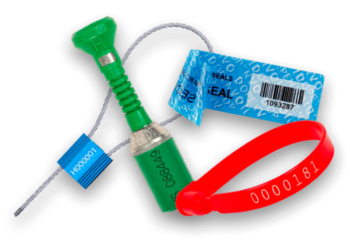In an increasingly interconnected global economy, the secure transportation of goods across borders and through supply chains has become a critical concern for businesses and governments alike. Ensuring the integrity of cargo during transit is not only vital for preventing theft and tampering but also for maintaining trust in international trade relationships. To address these challenges, the International Organization for Standardization (ISO) introduced the ISO 17712 standard, which sets guidelines for the design and testing of high-security seals used on containers and conveyances. This certification has demonstrated its effectiveness through numerous real-world case studies, reinforcing its significance in safeguarding cargo and fostering secure trade practices.
The ISO 17712 standard, first published in 2003, establishes stringent criteria for the mechanical strength, tamper resistance, and traceability of security seals. These seals are utilized to secure shipping containers, truck trailers, railcars, and other conveyances to deter unauthorized access, pilferage, and counterfeiting. The certification process involves rigorous testing and evaluation by accredited third-party laboratories to ensure compliance with the standard’s requirements. The adoption of ISO 17712-certified seals has yielded positive outcomes in various industries, exemplified by several notable case studies.
- Logistics Industry: In the logistics sector, where the efficient movement of goods is paramount, ISO 17712-certified seals have proven their worth. A major international shipping company implemented these seals across its container fleet to prevent unauthorized access and tampering. The company reported a significant reduction in theft-related losses, thereby enhancing its operational efficiency and customer satisfaction. The seals’ tamper-evident features acted as a strong deterrent, deterring potential theft attempts and promoting secure trade along complex supply chains.
- Customs and Border Protection: ISO 17712-certified seals have played a pivotal role in bolstering border security efforts. Customs and border protection agencies in various countries have adopted these seals to enhance the integrity of cross-border shipments. A case study from a nation’s customs agency revealed that the use of certified seals led to a decline in instances of cargo tampering and smuggling. This not only safeguarded national security interests but also facilitated smoother customs procedures and trade flows.
- High-Value Goods: Companies dealing with high-value goods, such as electronics and pharmaceuticals, face heightened risks of theft and counterfeiting. An electronics manufacturer, for instance, incorporated ISO 17712-certified seals into its packaging process for expensive electronic components. By doing so, the company managed to safeguard its products from pilferage during transit and maintain the authenticity of its offerings in the market. The seals’ standardized design and traceability features ensured a robust level of security that resonated with customers and partners alike.
- Industry Collaboration: ISO 17712-certified seals have also facilitated collaboration between stakeholders within industries. In the petroleum sector, oil refineries, transportation companies, and regulatory bodies joined forces to combat fuel theft and adulteration. By mandating the use of certified seals on tankers transporting fuel, the industry witnessed a decline in fuel siphoning incidents. This collaborative approach not only curbed criminal activities but also fostered a sense of responsibility and accountability within the industry.
Conclusion:
ISO 17712-certified seals have showcased their effectiveness in safeguarding cargo, deterring tampering, and promoting secure trade practices across various industries. The real-world case studies discussed above underscore the significance of adhering to standardized security measures when it comes to the transportation of goods. ISO 17712-certified seals provide a robust and tamper-evident solution that enhances border security, prevents theft, and maintains the integrity of high-value cargo. As businesses continue to operate in an interconnected global marketplace, the adoption of these certified seals remains a prudent choice for maintaining trust, minimizing losses, and ensuring the seamless flow of goods across borders and through supply chains.











